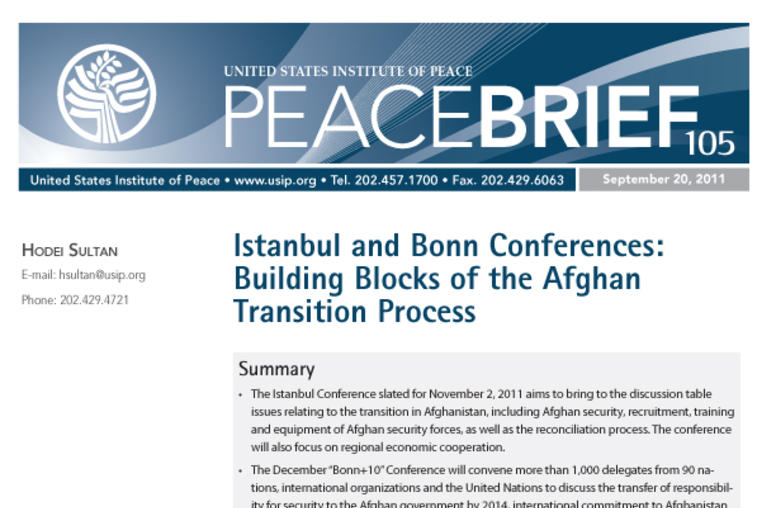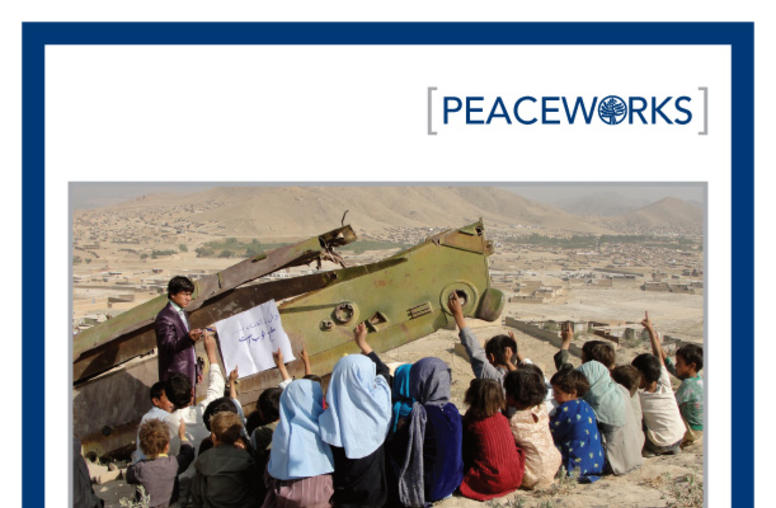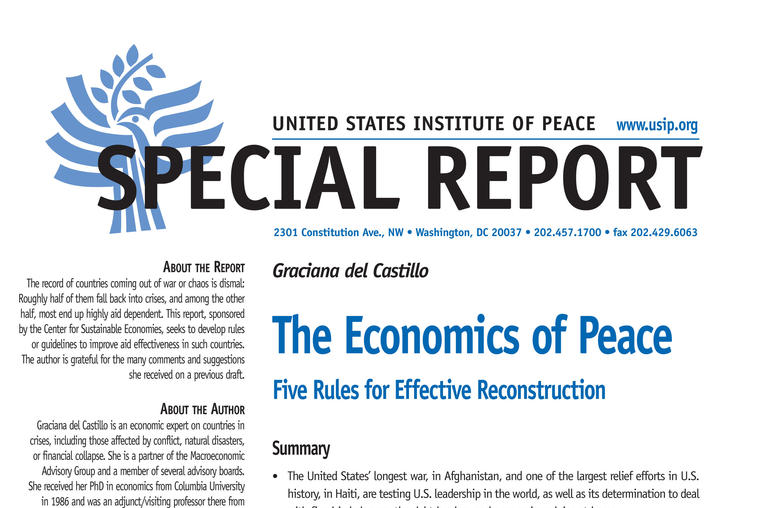Question And Answer
Publications
Articles, publications, books, tools and multimedia features from the U.S. Institute of Peace provide the latest news, analysis, research findings, practitioner guides and reports, all related to the conflict zones and issues that are at the center of the Institute’s work to prevent and reduce violent conflict.

Istanbul and Bonn Conferences: Building Blocks of the Afghan Transition Process
This brief highlights two upcoming major conferences that will play a critical role in the future of Afghanistan. Hodei Sultan, the author, is a program specialist for Afghanistan and Pakistan programs with USIP’s Center for Conflict Management.
World Recognizes International Day of Peace
To honor this worldwide event, USIP presents some highlights of peacebuilding around the world in 2011.

Designing a Comprehensive Peace Process for Afghanistan
This report, sponsored by the Center for Conflict Management at the U.S. Institute of Peace, draws on comparative research literature on peace processes to identify lessons applicable to Afghanistan and makes recommendations to the international community, the Afghan government, and Afghan civil society for ensuring a more comprehensive, successful, and sustainable peace process.

The Economics of Peace
Efforts to rebuild economies in postconflict zones around the world underscore a central lesson: development practices that work in peaceful countries often don’t apply to countries in transition.
USIP Staff Take Cover as Insurgents Mount Brazen Attack in Kabul
USIP’s Sylvana Sinha had just finished lunch and was in the middle of doing some last-minute planning for a rule of law conference the Institute is hosting in Kabul this month when she got word of large blasts downtown.
Panel at USIP Calls for Assessing Media Actions in Conflicts
Although media has become a core part of the international community’s efforts to manage conflict and promote peacebuilding, the ability to evaluate media interventions in conflict lags behind. There is an urgent need to ramp up the monitoring and evaluation of those efforts, a group of specialists said at the United States Institute of Peace (USIP) on September 9.
U.S. Senator on Top Challenges Ahead in Afghanistan
Afghanistan is headed in the right direction, but questions remain about how to sustain the country’s fledgling security forces and how much capacity there is to establish good governance, according to a U.S. senator who recently traveled to the country.
Brimmer Rejects Criticisms of U.N. at USIP Event
Taking on congressional critics of the United Nations, a senior State Department official told an audience at the United States Institute of Peace (USIP) on September 7 that the Obama administration’s multilateral diplomacy at the U.N. has bolstered U.S. security but that “backwards” calls to cut or further restrict U.S. funding for the world body, if enacted, would harm U.S. global influence.
Senior Official to Discuss U.N. Policies at USIP
The need for collaborative, multilateral action at the United Nations and on global problems is growing, but so are the budgetary pressures on the U.S. government’s foreign affairs spending. That collision of factors provides the context for a scene-setting address at the United States Institute of Peace (USIP) by Esther Brimmer, the assistant secretary of State for International Organization Affairs.
Dispute Resolution and Durable Peace in Afghanistan
USIP’s Scott Worden discusses the connection between local dispute resolution work, U.S. national security objectives and a lasting peace in Afghanistan.